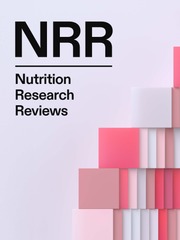No CrossRef data available.
Article contents
Effects of Active Compounds and Their Metabolites Associated with Coffee Consumption on Neurodegenerative Diseases
Published online by Cambridge University Press: 21 November 2024
Abstract
Coffee is one of the most known and consumed beverages worldwide. Only three species are used in commercial coffee production, i.e., Coffea arabica L. (Arabica coffee), Coffea canephora Pierre ex A. Froehner (Robusta coffee), and Coffea liberica Hiern (Excelsa coffee). The world population consumes approximately two billion cups of coffee per day, making it an important commercial resource of bioactive compounds in world markets. High interest in coffee consumption described in the literature is not only due to its organoleptic properties (for example desirable bitterness, amount of flavours, and aromas) but also for its ability to stimulate the central nervous system.
It is now known that there are more than 1000 compounds in coffee beverages, several of which have a bioactive activity. Recent studies show that consuming three to four cups of coffee per day, i.e. moderate consumption according to the European Food Safety Authority, may be beneficial for health.
The main objective of the proposed review is to provide a comprehensive overview of bioactive compounds in coffee and other caffeine-containing beverages and their effects on neurodegenerative proteinopathies.
- Type
- Review Article
- Information
- Copyright
- © The Author(s) 2024


